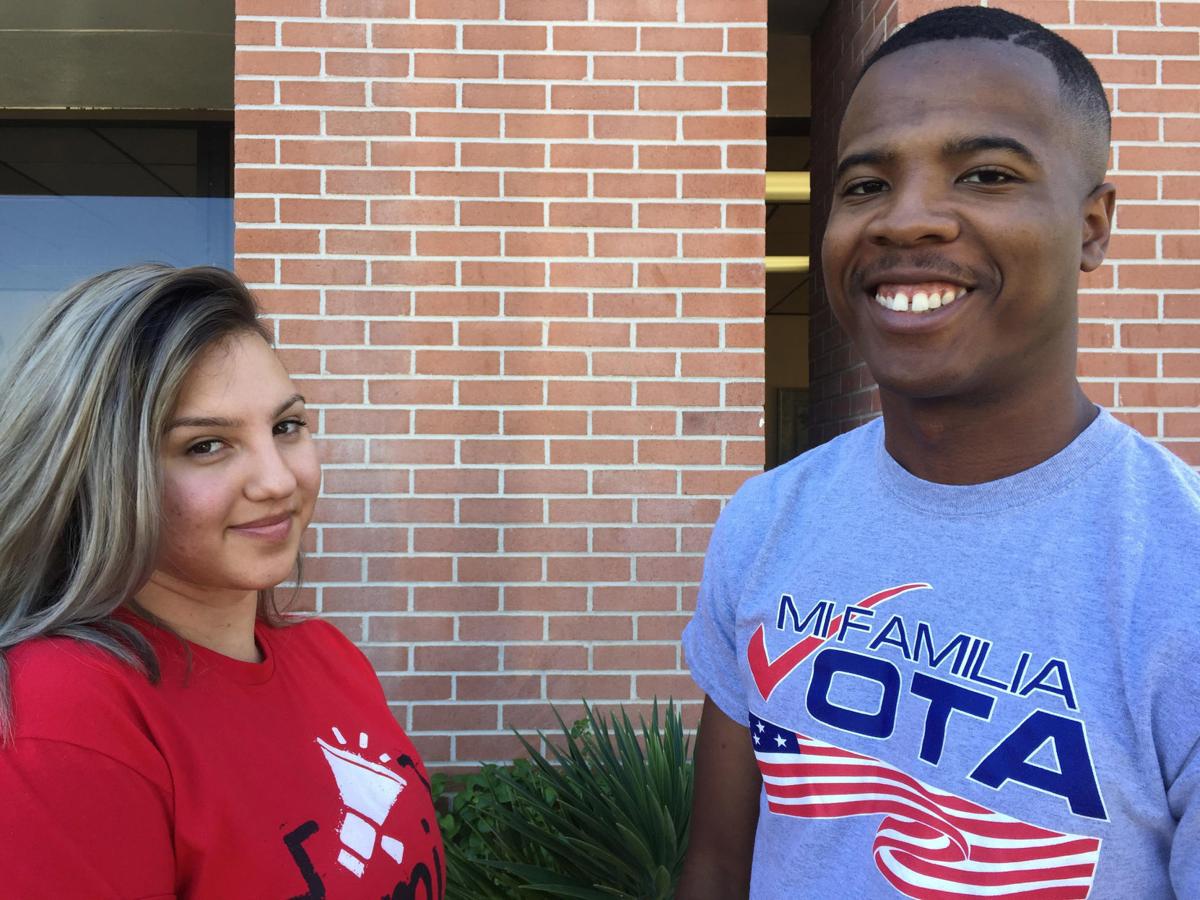With the critical midterm election a little more than a week away, Reyna Figueroa and Josh Burnett are pumped. They sense that the voter turnout will be large and specifically that the turnout by Latino voters will be significant.
“They didn’t have the urgency (in 2016). Now they do,” said Figueroa.
Voters want change, said Burnett. “They’re very eager to see changes made,” he added.
Burnett, a 22-year-old University of Arizona political science senior from Casa Grande, and Figueroa, a 19-year-old pre-law junior at the UA, work for Mi Familia Vota, a national nonpartisan organization that registers voters in Latino and immigrant communities, and gets them to vote.
Since the 2016 general election, paid canvassers and volunteers with Mi Familia Vota (My Family Votes ) have been organizing and walking door-to-door, talking to potential voters and registered voters. And as the months turned into weeks leading up to next week’s election, Figueroa and Burnett are confident that their efforts and that of their co-workers will pay off.
Every election cycle for the past three decades has brought to the forefront the role that Latino voters play in elections. As the percentage of Latinos in the general population grows, so does the promise of more Latino voters. Numbers have been increasing and so have the efforts to win the voters’ support.
Nationally, according to the NALEO Educational Fund, Latino voter turnout in the midterms is expected to exceed the turnout two years ago.
More than 7.8 million Latinos across the country are expected to vote, a 15 percent increase in turnout and a 7 percent increase over the Latino share of all votes cast in 2014.
In Arizona, NALEO, the National Association of Latino Elected Officials, estimates that more than 486,000 Latinos are expected to cast ballots. This would mark a 33 percent increase in turnout and nearly 10 percent increase in the Latino share of the total vote from 2014.
Sandy Ochoa, the Tucson director of Mi Familia Vota, shares the optimism that the Latino voter turnout will be higher on Nov. 6 than it was two years ago. The source of her optimism is that Mi Familia workers, about 40 every day, have focused on educating voters on the election process and helping them understand the ballot.
Paid canvassers fan out across select precincts, talking to voters who received mail-in ballots. The canvassers ask if the ballot has been filled out and mailed, and if it hasn’t, the canvassers urge the voters to complete the ballot.
“If they haven’t turned it in, we hit it again two, three times,” said Ochoa, a retired Pima County employee and former union organizer. “We’re being persistent.”
Selina Ramirez, a 23-year-old organizer, said voters who don’t vote, or are reluctant to, often cite their lack of knowledge of the process, say they don’t speak English or were unaware that they could vote.
Figueroa said the person-to-person contact that she and others make with voters is key. It’s grassroots, old-school organizing and can often be more effective than high-tech outreach through texts or computer phone calls, said Figueroa, a graduate of Mountain View High School in Marana.
“It makes a difference. Especially right now,” she said.
Ramirez, who has been with Mi Familia Vota for three years, senses that the potentially higher voter turnout among Latinos is tied to their increasing frustration and disapproval of the current political and social conditions in the country.
“They’re angry about the way America is being run. Latinos are feeling it,” she said.
Ramirez said Latino voters across the city, not just on the south and west sides where Latino residents are predominant, are expressing fear about the country’s direction and their disapproval over the lack of state funding for public education.
She said the state’s #RedforEd movement made itself known in the Latino community and that the teachers’ strike earlier this year is likely to affect state elections.
Figueroa said the work has been hard and the hours long, but it has been satisfying.
“Our efforts aren’t going unnoticed,” she said.





